By Stuart Wilkinson, OEF.
Editor, Oil Economy Focus
“In terms of reserves, I think that West Africa could reach 100 billion barrels, which is equivalent to Iran or Kuwait” Gene Van Dyk, owner Vanco Energy, 2003
The favorable expectations during the first decade of the 2000s with regard to West African petroleum were illustrated by the opinion of the owner of Vanco Energy, Gene Van Dyk, in an interview with him 2003: “In terms of reserves, I think that West Africa could reach 100 billion barrels, which is equivalent to Iran or Kuwait.” (1) He provided data to support the high quality and lightness of its crude when compared with the Middle East. In addition, in terms of petroleum production he considered that it would be easy to produce between nine or ten million barrels a day in West Africa. He added that petroleum supplies to the US from the region possessed certain advantages when compared to the Middle East: West Africa was half the distance from the US as the Middle East; there was no ship canal for the oil tankers to transit; and the region was without the security problems that there were with regard to the Middle East. (2)
In contrast, for China the situation was, and is, different. The distance to transport petroleum from West Africa to China is significantly longer than from the Middle East. Also for China, petroleum imports from West Africa – as also from the Middle East – means that tankers would have to transit the Straits of Malacca.
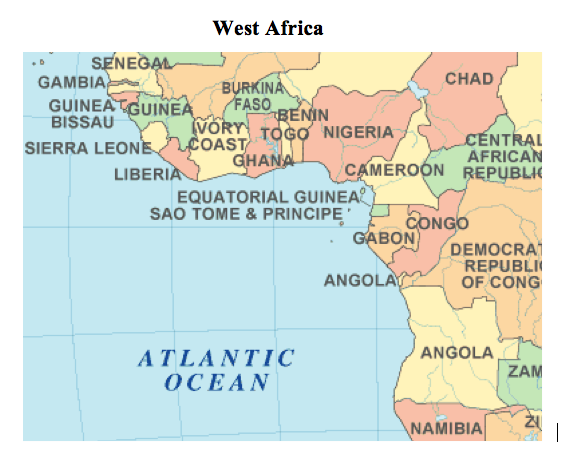
When considering the importance of West Africa for both the United States and for China, the following 2004 analysis should be emphasized: “Nigeria’s Concentric and Security Matters” puts emphasis on the fact that West Africa had positioned itself as the most active zone in terms of oil and gas exploration and production in the African continent, and possibly in the world. (3)
Such importance at that time can be inferred from the figures presented in the following tables…
According to the data presented in Table 1 one can observe that during the period 1999 to 2010 West Africa’s petroleum reserves increased 52.6%.
The greatest increases came from Equatorial Guinea with 183%; followed by Angola with 164.7%; and Chad – from 2000 to 2010 – with 66.7%. Gabon increased reserves by 42.3%; Nigeria by 28.35; and Congo (Brazzaville) by 11.8%.

As can be seen from Table 2, the region’s petroleum production rose 50% from 1999 to 2010.
Chad, which only became a petroleum producer in 2003, showed an increase of 408.3%; Equatorial Guinea showed an increase of 174%; Angola 152.7%; Nigeria 18.7%; and Congo (Brazzaville) 10.2%; Gabon’s production, however, fell by 26.5%.
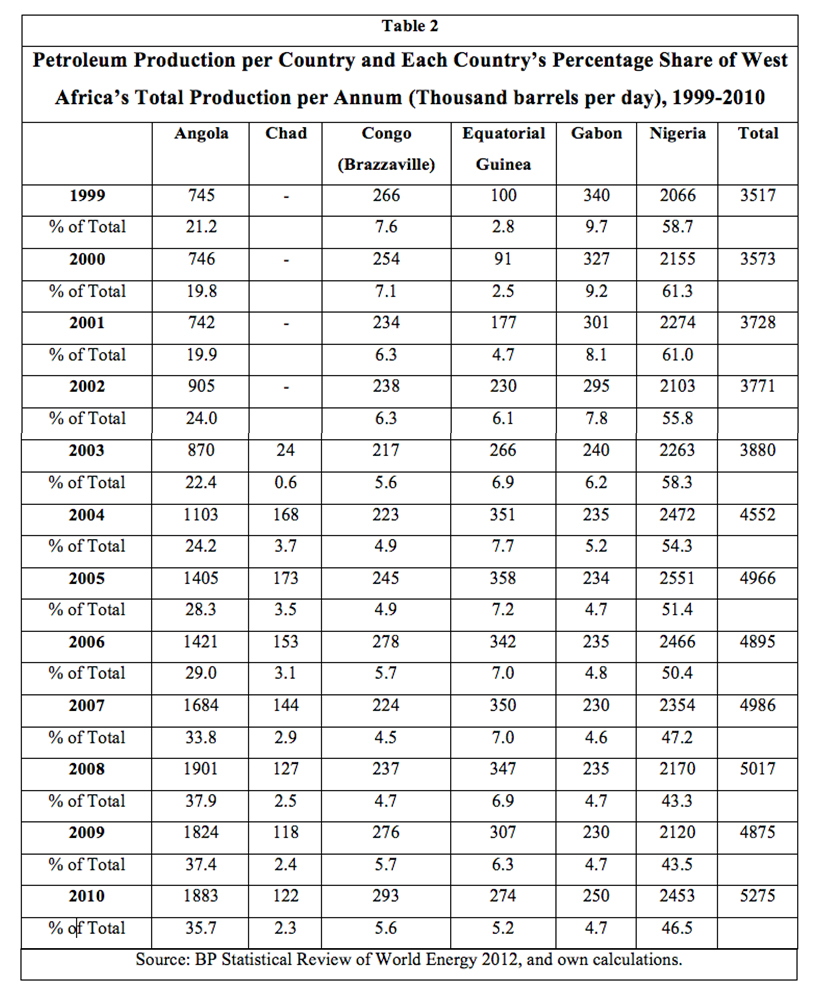
Table 3 shows the domestic consumption of petroleum of each of the countries in question from 1999 to 2010. Equatorial Guinea, Congo (Brazzaville) and Angola saw increases of 440%, 223.8%, and 180.7% respectively. Consumption in Chad increased 50%, and Gabon 25%. In contrast, Nigeria’s consumption fell by 3.9%.
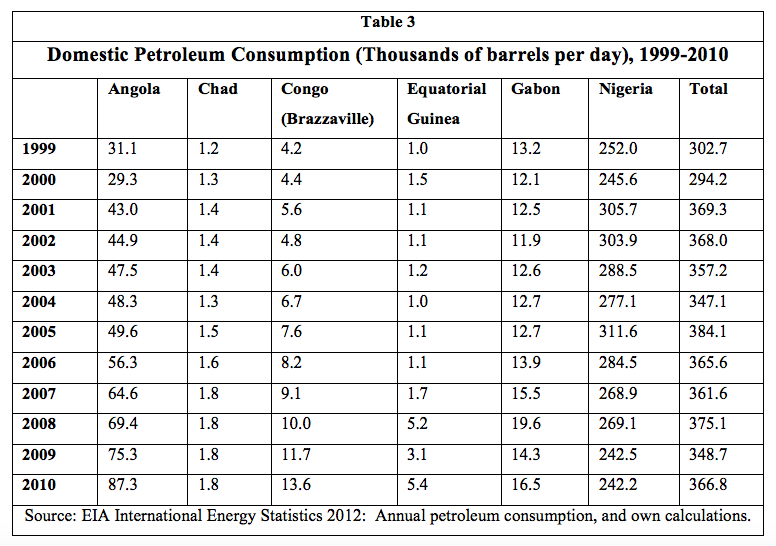
Table 4 shows that in the period 1999 to 2010 West African petroleum exports increased 67.7%. With regard to each of the countries under consideration, the main increase came from Equatorial Guinea with 3,127.6%, followed by Chad – which started to export in 2004 – with 738.6%, and Angola with 175.7%. Nigeria and Congo (Brazzaville) registered increases of 27.6% and 6.5% respectively. Gabon’s exports fell 28.3%.
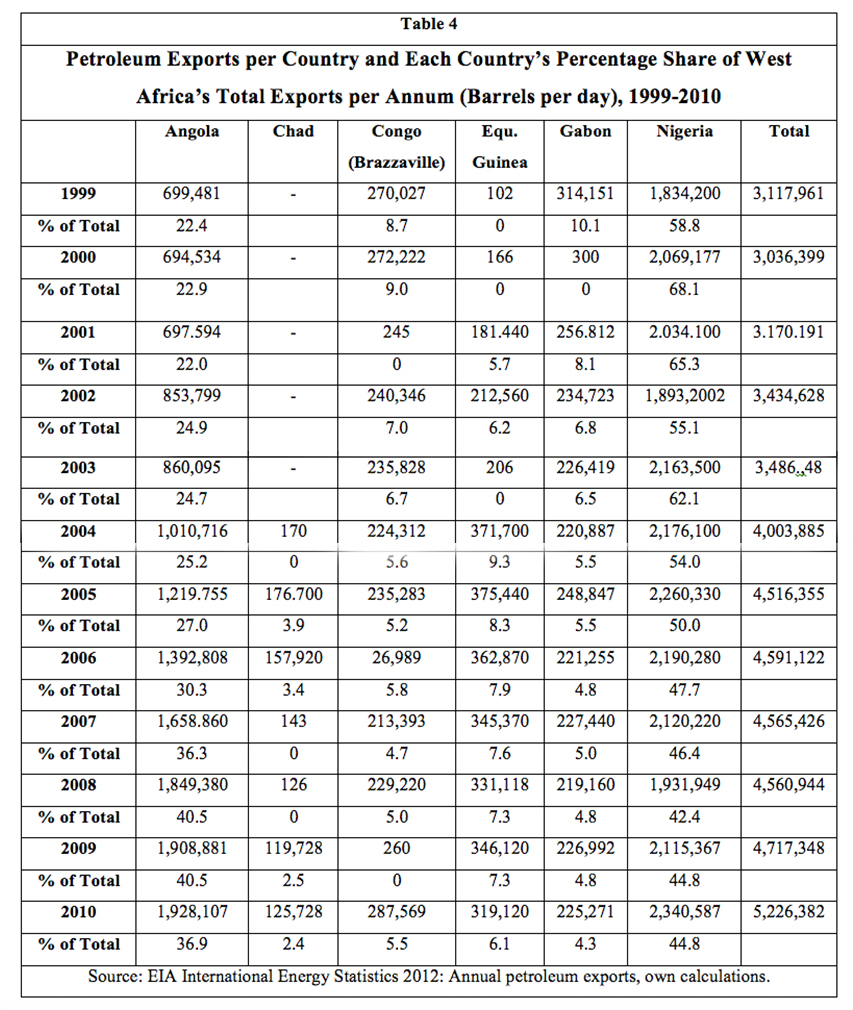

Petroleum Exports (Barrels per day), 1999-2010
Source: EIA International Energy Statistics 2012
The data in Table 5 shows that during the period 1999 to 2009 West Africa’s petroleum production increased 40.6%. This was a figure more than three times larger than the 12.4% registered by the increase in world production in that period.
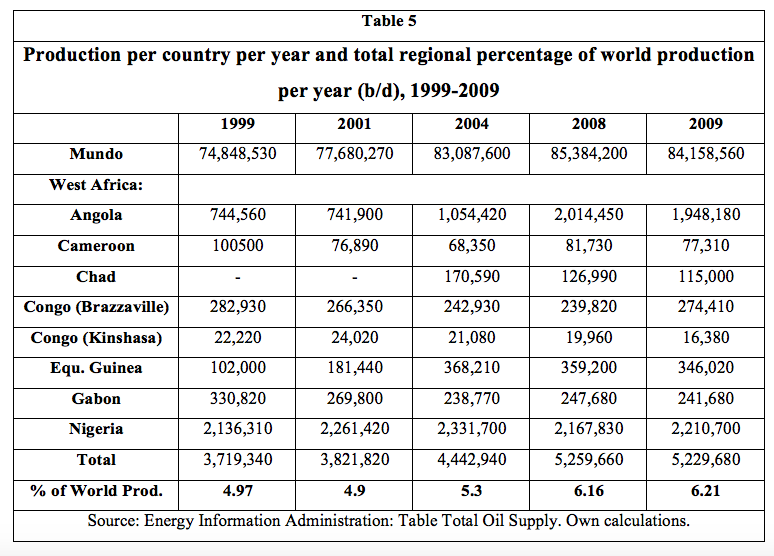
In Table 6 one can see that from 1999 to 2009, OPEC production increased 15.6%; at the same time West Africa’s production increased 44.6%, the share of Angola and Nigeria in OPEC production rising from 9.8% to 12.3%.
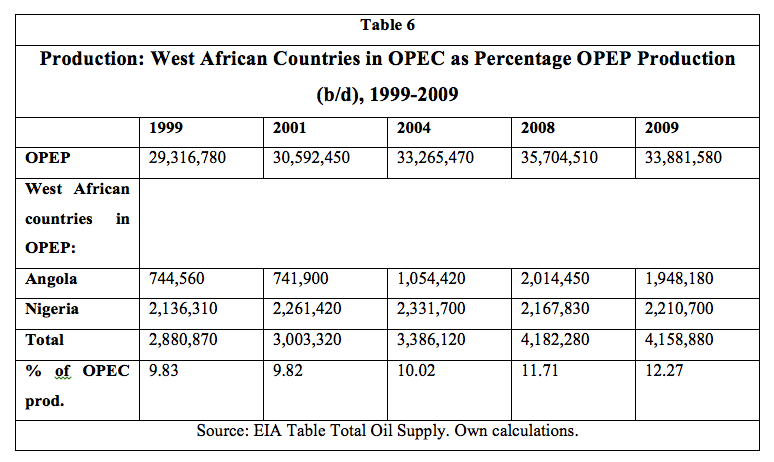
Looking at the years 2001, 2004, and 2008, Table 7 shows that China increased its petroleum imports from West Africa by 930%. Its petroleum imports from all countries rose 144.6%.
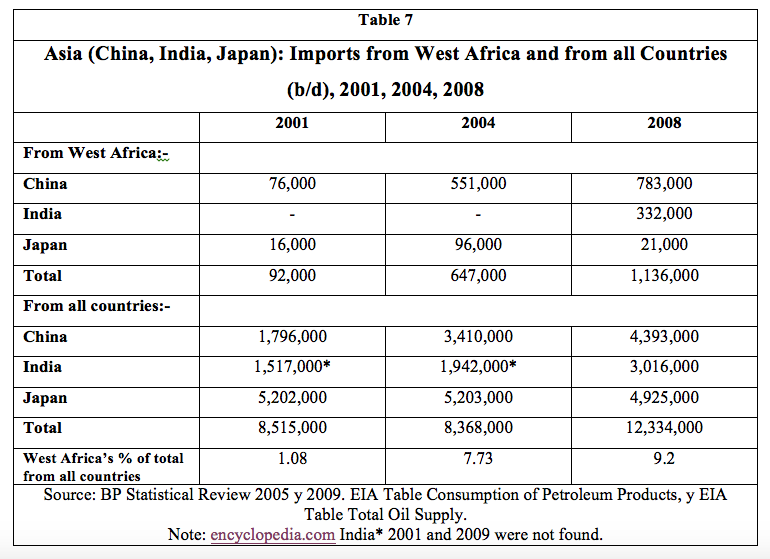
As may be seen from the above tables illustrating the growing magnitude of West Africa’s reserves, production, domestic consumption, exports, percentage of world production and of OPEC production, as well as China’s imports from the region, West African petroleum can clearly be seen to have been increasing its weight during the time-frame under consideration. One can appreciate why Daniel Yergin, President of Cambridge Energy Research, said in 2002 that the petroleum industry was excited about West Africa (4); and why the president of the Petroleum Financing Company, Robin West, said – in the same year – that in the short to medium term West Africa could be a source of petroleum more important than Russia. (5)
References:
- Finding Africa´s Big Oil – in Deep Water. Reed Cramer, allAfrica.com, January 21, 2003.
- Op. Cit.
- Nigeria’s concentric and strategic security matters. Max Grabanite, kwenu.com, 10th September, 2004.
- In quietly courting Africa, US likes the oil dowry”. James Dao, 18th September, 2002
- Op. Cit.

